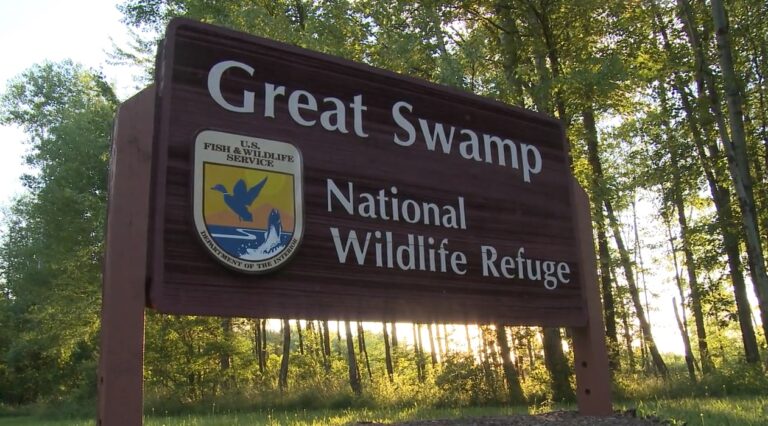
The future of America’s public lands is at stake!
Trenton, NJ.-by Alison Mitchell, executive director of New Jersey Conservation Foundation.
“Public Lands Threatened!” “National Wildlife Refuges Face Funding Cuts!”
These are some of the alarming headlines you may have seen lately as proposals by the Trump Administration threaten to upend the time honored American tradition of protecting open space for the public’s enjoyment.

While proposals to actually sell off public lands have been temporarily halted due to major bipartisan outcry from the U.S. Congress and outdoor enthusiasts across the country, the Trump Administration is attempting to move forward with other damaging measures, including deep cuts to the agencies that steward our public lands.
A case in point, the National Wildlife Refuge System was already short-staffed, but in January of this year, it lost nearly 20 percent of its employees — people essential to the functioning of the refuges.
A coordinated effort by the Administration is now underway to dismantle the Land and Water Conservation Fund (LWCF) — the bipartisan conservation program that has preserved public wildlands, waters, urban parks, and outdoor access across all 50 states for over half a century.

LWCF funding supports the preservation of all kinds of public lands. In fact, New Jersey’s five stunning national wildlife refuges were created through LWCF, including Great Swamp National Wildlife Refuge — the first wilderness area in the country designated by the U.S. Fish and Wildlife Service — and Edwin B. Forsythe National Wildlife Refuge, which is located along the Atlantic Flyway and part of a critical path for seasonal bird migration.
These refuges, along with the Cape May, Supawna Meadows, and Wallkill River refuges, encompass almost 70,000 acres of protected areas where native species can find healthy habitats, rest on migration journeys, and stay safe from threats of development. These special places also provide outdoor recreation opportunities, including birding and hiking, in proximity to some of the most populated urban areas in the country.

In 2020, after years of bipartisan advocacy, the Great American Outdoors Act was signed into law by President Trump, securing permanent funding for LWCF at $900 million annually and guaranteeing those dollars would go directly to protecting parks, trails, forests, refuges, and waterways. The law was clear: LWCF funds were not to be diverted or repurposed.
Now, just a few years later, the Administration is trying to break that promise. Its 2026 budget proposal would gut LWCF by diverting nearly $387 million — more than one third of all dedicated LWCF funds — away from conservation projects. This includes a whopping 90% cut to funds to expand national parks, forests, wildlife refuges, and Bureau of Land Management lands.

If allowed to move forward, this proposal would reverse decades of progress and halt critical projects across the country.
Thankfully, here in the Garden State our representatives are standing up for conservation. New Jersey Representatives Chris Smith, Tom Kean Jr. and Jeff Van Drew recently joined colleagues in a letter to the Chair of the House Interior Appropriations Subcommittee asking that LWCF be protected in the Subcommittee’s 2026 funding bill. It worked, for the moment. The bill passed through the Committee with no diversions of LWCF — a flat-out rejection of President Trump’s proposal.
However, our members of Congress must go further by speaking directly to Department of Interior Secretary Burgum without delay about the importance of continuing to safeguard this very popular bipartisan program to protect open spaces across the nation.

LWCF is funded through a small portion of offshore oil and gas lease revenues — not taxpayer money — and it’s one of the most cost-effective conservation tools we’ve ever had. For every dollar invested, the return in outdoor recreation, tourism, health benefits, and local job creation is substantial. The 2013 Banking on Nature report estimated that visitation to national wildlife refuges contributed $4.5 billion to the economy and provided over 35,000 jobs.
The mature forests, beach dunes and healthy wetlands that lie within public lands are vital not only to wildlife, they provide resilience in the face of a changing climate and safeguard clean drinking water.

Future generations will inherit our legacy. If Congress defends our public lands, that legacy will be a country that honors its promises, protects its natural heritage, and ensures everyone — no matter their zip code — can experience the peace and freedom of the outdoors.
Our public lands belong to everyone, and they should be protected for all living beings to enjoy.





